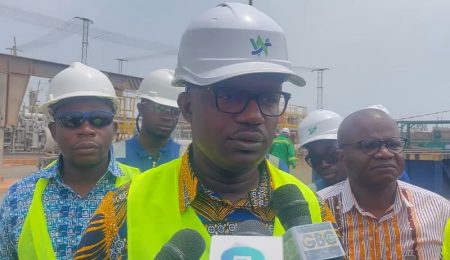The Nigerian government, through the Nigeria Automotive Design and Development Council (NADDC), is embarking on a significant initiative to regulate the importation and dealership of cars nationwide. This move is primarily driven by the need to curb the influx of unsafe, accident-prone, and condemned vehicles often smuggled into the country, posing significant risks to Nigerian citizens. The NADDC recognizes that the unregulated nature of the used car market has allowed unscrupulous individuals to exploit loopholes, jeopardizing road safety and undermining efforts to develop a robust local automotive industry. This initiative aims to establish a framework that ensures accountability and transparency within the automotive sector, ultimately benefiting both consumers and the Nigerian economy.
A key aspect of this regulatory effort involves collaborating with stakeholders, particularly the Association of Motor Dealers of Nigeria (AMDON). The NADDC recognizes that effective regulation requires the active participation of those directly involved in the automotive trade. By engaging with AMDON, the government aims to foster a sense of shared responsibility in upholding safety standards and combating the illegal importation of substandard vehicles. This collaboration also seeks to empower AMDON to self-regulate its members, identifying and reporting those who engage in unethical practices, such as importing condemned vehicles, thereby damaging the reputation of the entire industry.
The NADDC’s focus on regulation is not solely about controlling imports; it is intricately linked to the broader goal of fostering a thriving local automotive industry. By streamlining the import process and curbing the influx of used vehicles, the government aims to create a more favorable environment for local manufacturers to compete. This approach is also anticipated to conserve foreign exchange, as reliance on imported vehicles diminishes, and stimulate economic growth by creating jobs and boosting domestic production. The NADDC acknowledges that achieving this vision requires a comprehensive approach, encompassing component development, increased production capacity of local manufacturers, and close collaboration with all stakeholders.
The NADDC recognizes that the success of this initiative hinges on strengthening the local automotive supply chain. It is actively working with local manufacturers to enhance their production capacities to meet the growing demand for vehicle components. This focus on local production signifies a shift away from dependence on imported parts, thereby reducing reliance on foreign suppliers and promoting self-sufficiency. Furthermore, it recognizes the importance of creating a sustainable ecosystem where local manufacturers can effectively contribute to the growth of the automotive sector and, in turn, the Nigerian economy.
AMDON has expressed its support for the government’s regulatory move, acknowledging its necessity for the long-term health of the automotive sector. The association has historically advocated for regulation, recognizing the challenges posed by the unregulated influx of used vehicles. AMDON points out that the current system, where individuals, including civil servants, can import cars without being registered dealers, creates an environment conducive to malpractice. This unregulated environment makes it difficult to track the source and quality of imported vehicles, increasing the risk of unsafe vehicles entering the market. AMDON believes that regulation will provide a much-needed framework for accountability and transparency, ultimately benefiting both dealers and consumers.
The collaboration between the NADDC and AMDON is crucial in addressing the multifaceted challenges of the automotive industry. The NADDC’s focus on regulation, coupled with AMDON’s commitment to self-regulation, presents a promising approach to combating the influx of unsafe vehicles, fostering a more robust local automotive industry, and ultimately protecting Nigerian consumers. This partnership underscores the importance of a collaborative approach involving government agencies and industry stakeholders to address complex issues and achieve sustainable solutions within the automotive sector. This concerted effort aims to create a safer, more transparent, and economically beneficial automotive landscape in Nigeria.














